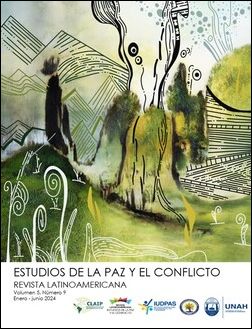Documentary analysis of two child participation mechanisms in Mexico: “The Children and Youth Consultation” and “The Parliament of Girls and Boys of Mexico”
DOI:
https://doi.org/10.5377/rlpc.v5i9.16122Keywords:
Citizenship formation, child participation, citizenship, diversityAbstract
The main goal of this article is to present the results of the documentary research made to analyze the child participation and citizen formation paradigms promoted by the Children and Youth Consultation and the Children’s Parliament in Mexico. These two participation mechanisms that promote the construction of citizenship were selected based on their national high-profile status due to the public institutions that promote them, among them the National Electoral Institute, the Ministry of Public Education and the Legislative Branch through the Chambers of Deputies and Senators. To achieve these objectives qualitative research was proposed, and the content analysis method was used. The analysis showed the relationship between these mechanisms and the citizen profile that is sought to be formed according with the national legal framework, as well as it allowed to determine how each mechanism addresses the sociocultural diversity of its target population. The results of the research are considered relevant for the Mexican context because it is a scarcely studied topic, and even more so, with the variables proposed: citizenship formation, child participation and sociocultural diversity.
Downloads
646
HTML (Español (España)) 78
XML (Español (España)) 75
EPUB (Español (España)) 75
Downloads
Published
How to Cite
Issue
Section
License
Copyright (c) 2023 Latin American Journal of Peace and Conflict Studies

This work is licensed under a Creative Commons Attribution 4.0 International License.
The journal's contents are published under a Creative Commons Attribution 4.0 license (CC BY 4.0). This license allows third parties to share (copy and redistribute the material in any medium or format) and adapt (remix, transform and create from the material for any purpose, including commercial), as long as the authorship and first publication in this journal (Revista Latinoamericana Estudios de la Paz y el Conflicto, Universidad Nacional Autónoma de Honduras - Consejo Latinoamericano de Investigación para la Paz, DOI of the work) is acknowledged, a link to the license is provided and it is indicated if changes have been made to the original. The terms of the license are available online at http://creativecommons.org.




